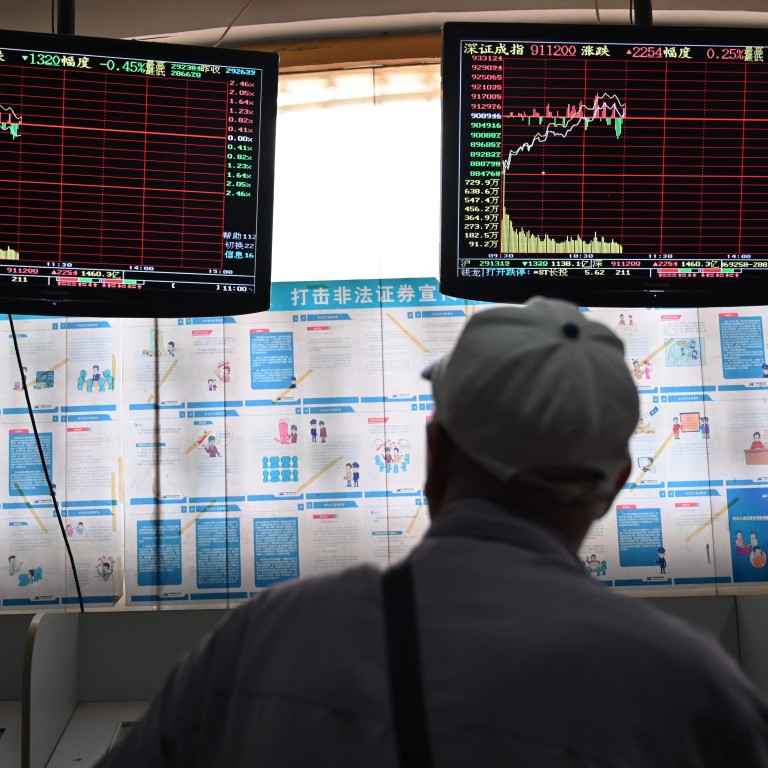
Where has all the money gone? US-China trade war triggers capital flight from emerging Asian markets
- Recent flare up in trade tensions between the US and China led to outflows of more than US$2.5 billion in Chinese equities last week
- Inflows into global bond funds has been accelerating at their fastest pace since 2002
Trade war fears have triggered abrupt capital flows around the globe, as funds flee equities to seek shelter in lower risk assets and less trade dependent regions.
Data from Jefferies and the Institute of International Finance showed that emerging markets saw the largest capital outflow in eight months, while inflows into bond funds grew at their fastest pace in 17 years. Global equities ETF (exchange-traded funds) meanwhile posted a combined outflow of US$22.6 billion over the past two weeks, according to data from Bloomberg as of Thursday afternoon.
The outflow from equities has reversed the previous five-week inflow streak, as investors became increasingly risk-averse due to the escalating trade war between the US and China, according to analysts from Jefferies.
“The bottom line is while equity markets have floundered over the past week or so, they have not fallen enough to entice buyers,” said Sean Darby, chief global equity strategist for Jefferies.
Separately, recent data from IIF also showed emerging markets registered the largest capital outflow this week since October 2018 at US$1 billion. The initial trade frictions between China and the US then triggered an outflow of around US$1.1 billion.
The main driver of the outflow was emerging markets equities, in particular China.
The recent flare up in trade tensions between the US and China led to outflows of more than US$2.5 billion in Chinese equities last week or around US$600 million a day.
Other emerging markets in Asia such as South Korea, India, Indonesia and Taiwan have mirrored China’s trend, highlighting the risks to the broader EM complex from the increased US-China trade tensions, IFF analysts said.
Funds are instead seeking shelter in lower risk assets, such as bonds and equities in defensive sectors.
Meanwhile, substantial interest has been seen within the money markets.
Data from Bloomberg showed flows into global money market ETFs reached US$2.6 billion over the past week.
At the sector level, redemptions were significant across all sectors, except utilities. IT, financials, and industrials led the outflows. Energy, materials and telecom services were also shunned by investors.
According to Jefferies analysts, capital outflows were more significant from countries highly dependent on trade, while less trade-dependent markets outperformed peers.
Seven heavily trade dependent regions – Hong Kong, Singapore, Ireland, Taiwan, Netherlands, Malaysia, and Thailand – posted an average 2.4 per cent of net fund outflows as a percentage of the funds’ managed assets since April 3, 2018, when the 25 per cent tariffs on US$50 billion of Chinese goods were announced, according to an estimate by Jefferies.
The seven regions all have a high trade-to-GDP ratio, between 120 per cent to 380 per cent.
Meanwhile, Brazil and Colombia, which have a trade-to-GDP ratios of 24 per cent and 34 per cent respectively, performed much better than peers. Colombia saw a 7.8 per cent net fund inflow as a percentage of the funds’ managed assets. Brazil saw virtually zero net outflow during the same period.

